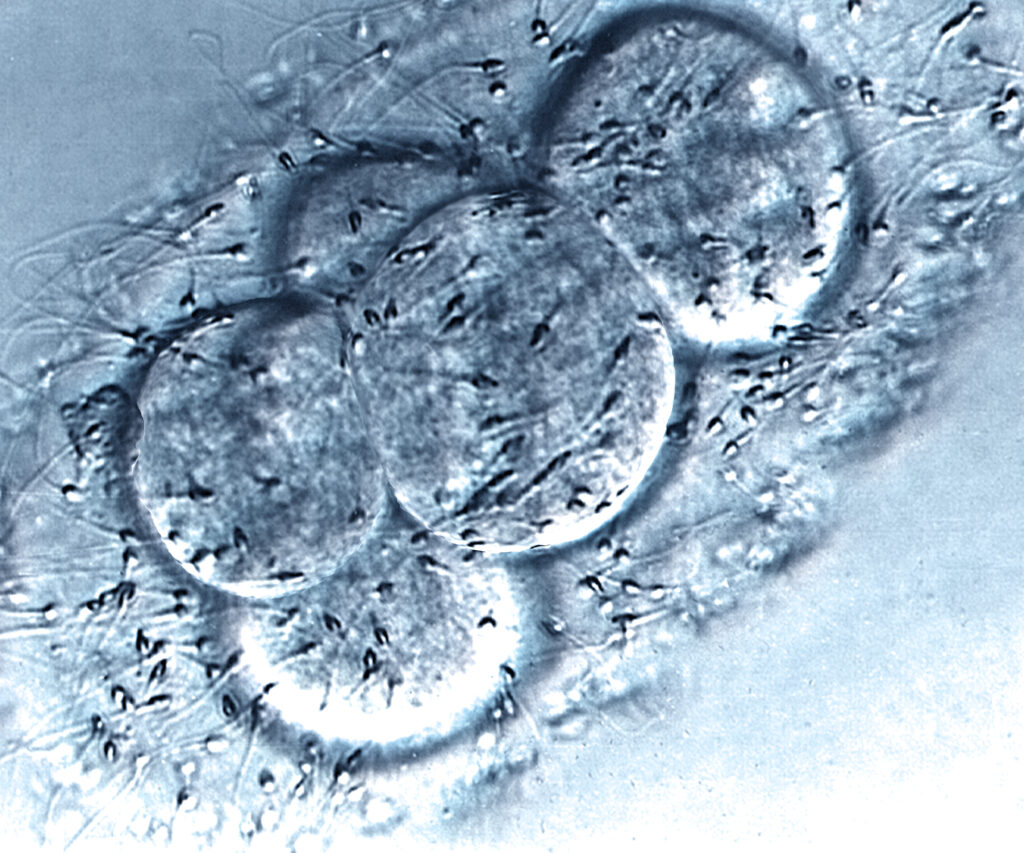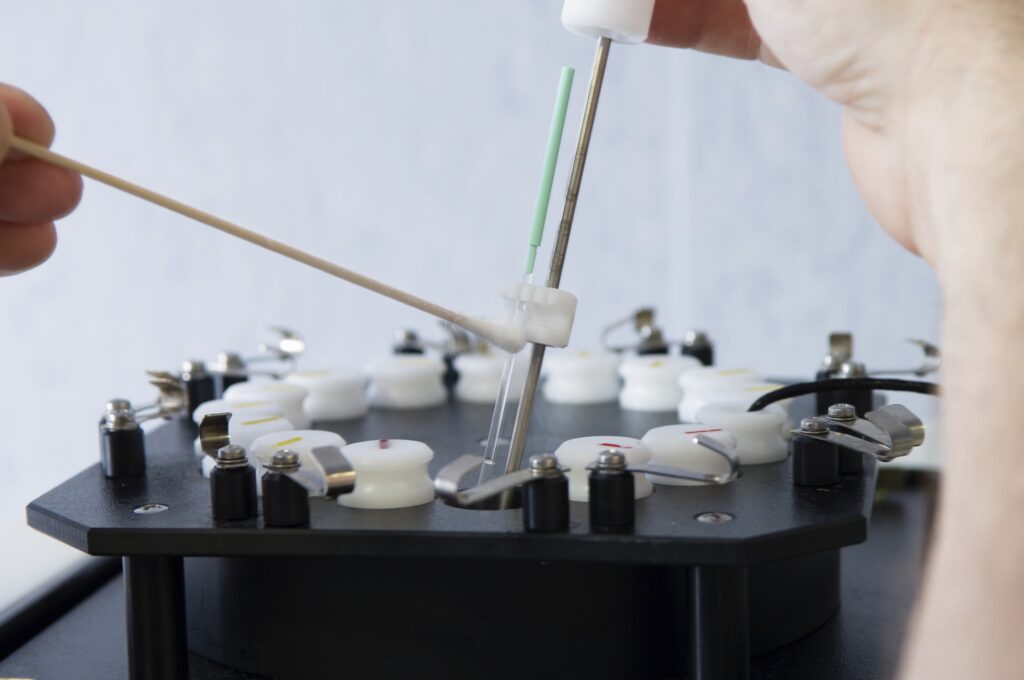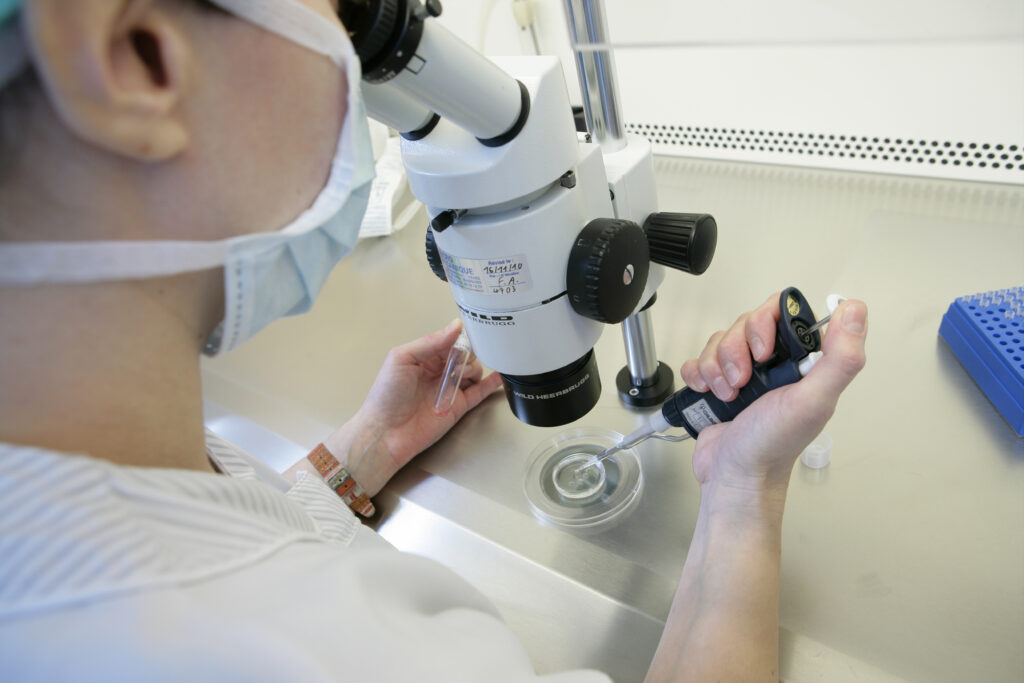Nature Journal on Embryo Gene Manipulation: “It’s Time to Give Patients a Voice”
As the international debate continues on the use of CRISPR gene-manipulating technology on human embryos, Nature journal last week gave serious consideration to concerns about its societal consequences. In a news feature entitled, “Should you edit your child’s genes?” author Erika Check Hayden takes a refreshingly humane approach by asking people with disabilities what they think of the real-life prospect of “editing out” genes responsible for disability before a person is even born.
Setting the tone upon the article’s open and close is this scenario involving nine-year-old Ruthie Weiss who has a “misspelling” in one of her genes causing albinism and blindness:
In January, Ruthie’s dad Ethan asked her whether she wished that her parents had corrected the gene responsible for her blindness before she was born. Ruthie didn’t hesitate before answering – no. Would she ever consider editing the genes of her own future children to help them see? Again, Ruthie didn’t blink – no.
She’s not alone. Though others expressed varying opinions, many highlighted a host of reasons to give pause.

CRISPR–Cas9 is a powerful DNA-editing technique that allows scientists to “cut and paste” DNA at a specific site with more precision than ever before.
The recently discovered gene editing technique, which relies on a natural process used by ordinary bacteria to defend against viruses, has prompted fierce debate – not for its potential use on born individuals with severe diseases – but for its use on human embryos. At this developmental stage, gene alterations of the embryonic individual would be passed down through the generations of his or her future progeny – “breaching an ethical line that has typically been considered uncrossable,” according to the Nature article.
Congress has fortunately placed this embryo-manipulation – and its potential to change the genetics of humanity – on pause in the United States by way of a “modest but meaningful” new provision in the federal funding Omnibus bill for 2016. The language, introduced by Rep. Robert Aderholt of Alabama, closes a gap in federal law, now prohibiting federal funding for approval of “research in which a human embryo is intentionally created or modified to include a heritable genetic modification.”
As a disability rights advocate and Co-director of Emory University’s Disability Studies Initiative, Rosemarie Garland-Thomson expressed her reservations on attitudes surrounding gene-manipulating technologies in the Nature article. Pointing to the enactment of the Americans with Disabilities Act, she says social integration of people with disabilities has “significantly change[d] our attitudes about what kinds of people matter in the world.”
Specifically regarding gene-manipulating technology, she says, “We do have to start coming up with more arguments for diversity, and quickly, because CRISPR is coming faster than some of us are thinking about the issue… At our peril, we are right now trying to decide what ways of being in the world ought to be eliminated.”
Interestingly, within this larger discussion on preventing inheritable conditions and disability rights, the Nature article offers a thoughtful aside on the selective abortion of unborn children prenatally diagnosed with Down syndrome (DS) – and how it has impacted populations. Though the prevalence of DS in Europe has risen from 20 cases per 10,000 in 1990 to 23 cases per 10,000 today, the actual number of children born with DS “has stayed level at about 11 per 10,000 because many women whose fetuses are diagnosed with the condition terminate their pregnancies.”
Highlighting original research by medical geneticist Dr. Brian Skotko of Massachusetts General Hospital, the article acknowledges his findings that doctors sometimes “advise women to terminate or give up for adoption” a baby prenatally diagnosed with DS. Dr. Skotko surveyed women who received prenatal diagnoses of DS and compiled similar surveys from around the world. By using negative phrases like, “I’m sorry” or “I have some bad news to share,” Skotko found that doctors can influence a woman’s decision to abort.
Dr. Skotko also researched the “flipside” of this finding – what born individuals with DS and their families report on how happy they are. The Charlotte Lozier Institute summarized his findings in a major report from 2014: 99% of surveyed people with DS are happy with their lives; 97% like who they are; 99% of parents said they love their child with DS; 97% of brothers/sisters (aged 9-11) said they love their sibling. (See “Improving Joyful Lives: Response to Difference and Disability”.)
Check Hayden’s Nature article also gives due consideration to the happiness of individuals with disabilities, citing one study from the 70’s that found people who became paralyzed after an accident “derived more pleasure from everyday activities, such as eating breakfast or talking to a friend” than did people who won the lottery.
Returning to the question of altering genes in human embryos, particularly in regards to severely debilitating cases of disease or disability, Check Hayden spoke with Matt Wilsey, father to six-year-old daughter Grace. Grace, who can “barely walk and cannot talk,” is one of the first people in the world diagnosed with a gene mutation that makes it difficult for her body to get rid of misshapen proteins. Doctors do not even know how long she may live because her condition is so new.
Though Wilsey says he would have fixed this mutation before his daughter was born if given the chance, he notably underscores another concern. The article reads:
But [Wilsey] is frustrated that the debate over editing embryos seems to have monopolized discussions about the technology. He is hopeful that a gene-therapy-like approach using CRISPR, which would be free of the ethical concerns about altering the genes she passes on, could help Grace within several years. And he wonders whether a temporary moratorium on embryo editing might allow the field to focus on such approaches sooner.
Last week, Nature journal contributed a refreshing and much-needed perspective to the fierce debate on genetic manipulation in human embryos using CRISPR. Because the technique, if used in embryos, would create heritable genetic changes in the human race (the consequences for which are totally unknown), would not take into account the consent (or potential happiness) of the young life and his or her future children, and would undoubtedly result in the destruction of many young lives due to the experimental nature, we must continue to support protections of young human life against this technique and instead focus on how it could be used for truly therapeutic treatments in already born, suffering individuals.
Genevieve Plaster is a research assistant for the Charlotte Lozier Institute.
























